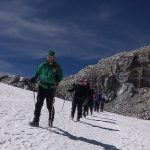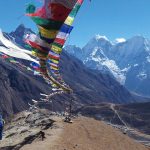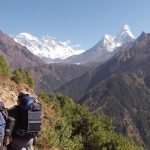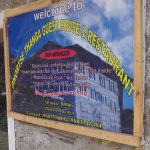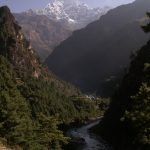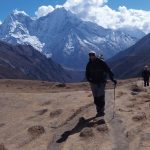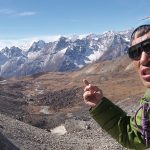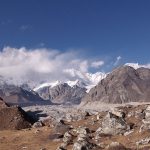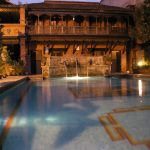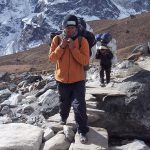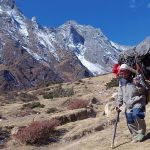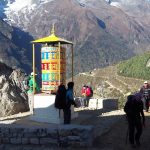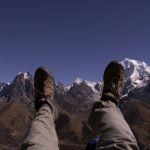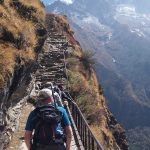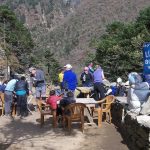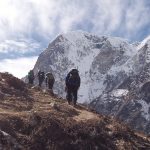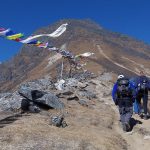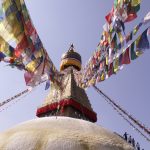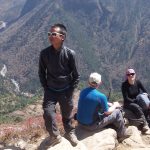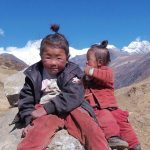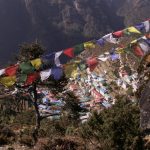Annapurna Spiritual Yoga Embrace your Inner Zen
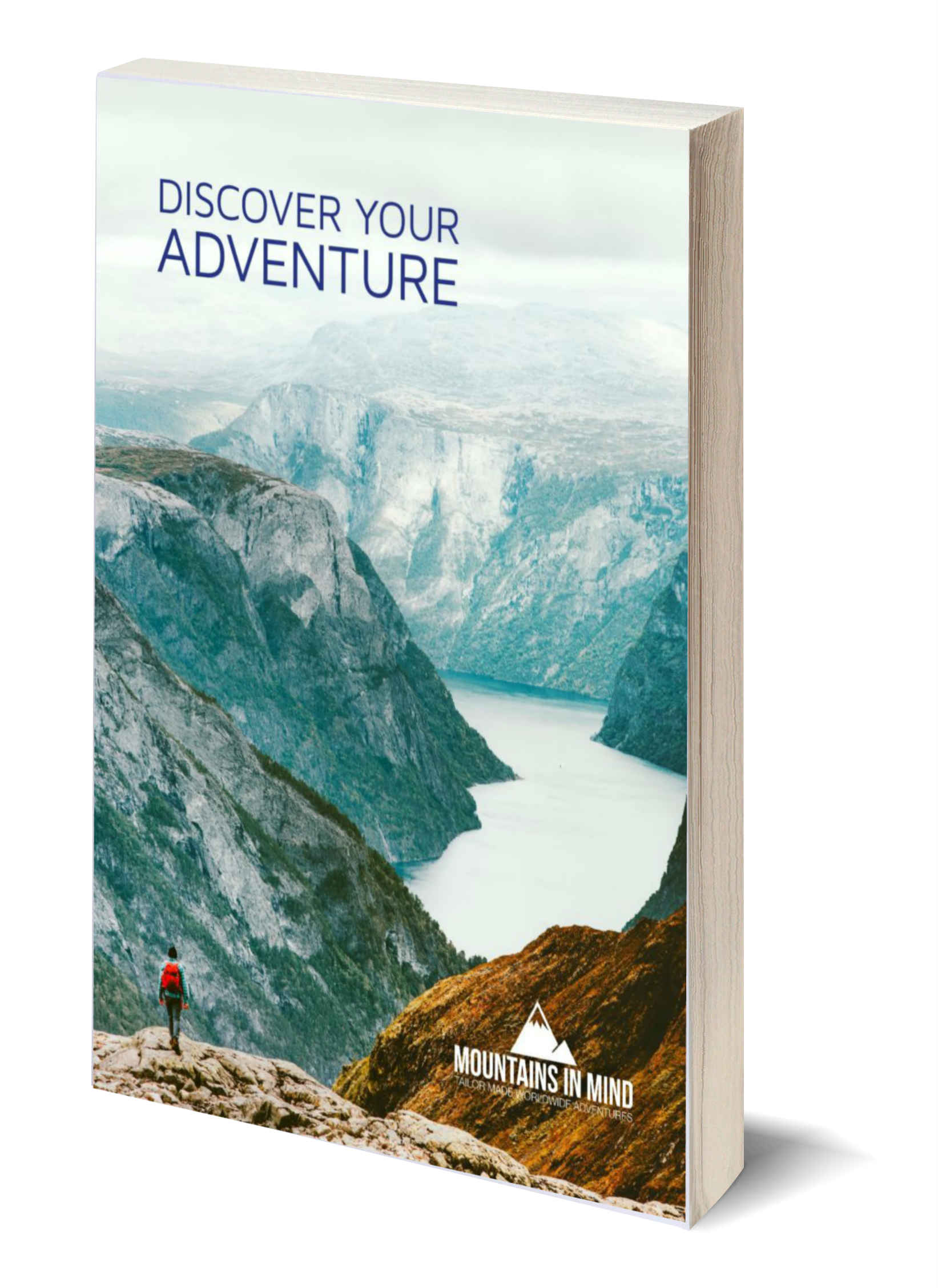
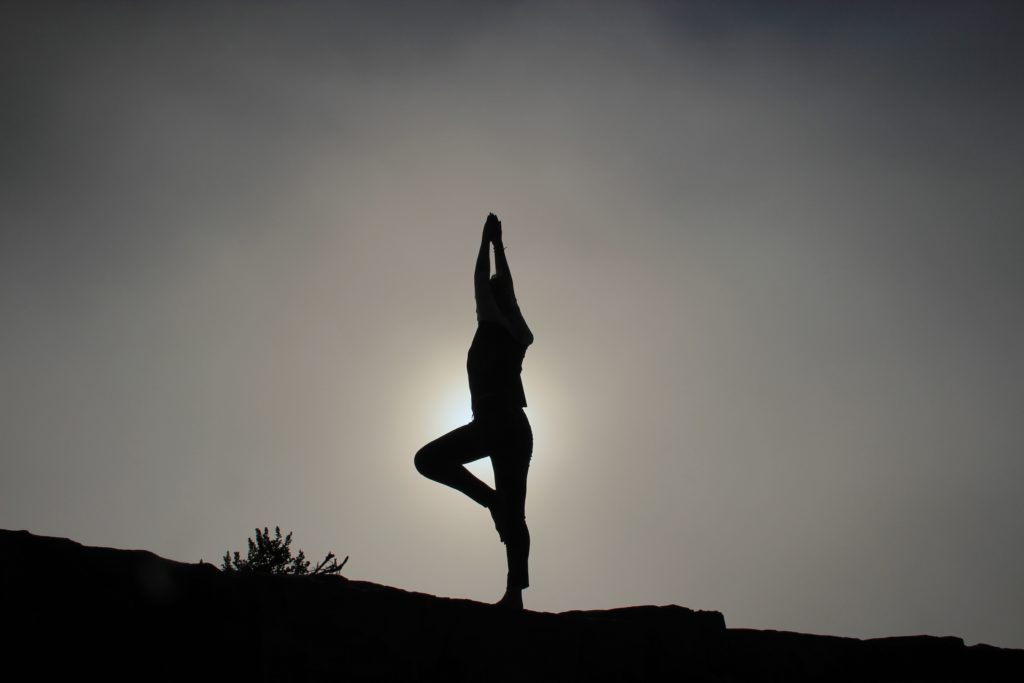
Why Choose Mountains in Mind?
- Excellent Sherpa conditions
- Supports the local community
- Small group sizes
- UK Guide
- Tailored itinerary
- Selective group dates
- Personal touch
- All inclusive price
- Deluxe accommodation
- Optional excursions
- GPS Trackers
-
Our Annapurna Spiritual Yoga trek is an opportunity to relax, unwind and escape the hustle and bustle of everyday life. This is gentle trekking at its best with daily meditation, yoga, stretching and breathing exercises included whilst out on the trail surrounded by awe-inspring scenery bringing you an altogether mindful experience.
Our trip begins in Kathmandu where you’ll visit several ancient spiritual monuments before flying out to Pokhara for the start of the trek. You are in for a treat, as you head gently though lush rhododendron forests and passing by prayer wheels in the local villages.
The highlight of the trek is reaching the summit of Poon Hill for day break. You’ll be mesmersised by the snaking of torchlights making their way to the summit and the constellations of stars in the clear night sky. If you’re feeling a little chilly you can warm yourself up with a delicious hot chocolate as you wait to witness the amazing spectacular of the sun rising up over the glorious mountain backdrop. It’s not called a photographers paradise for nothing!
-
- Saturday 4th April – Saturday 18th April 2020
- £2845
- Other dates available. Contact us for details.
-
- International flights
- Internal flights to Pokhara
- All meals during the trek
- A welcome meal in Kathmandu
- Deluxe accommodation in Kathmandu
- Traditional guest house accommodation on the trek
- A fully supported Sherpa team with Nepali Sirdar
- Porters to carry your overnight baggage
- Yoga instructor
- Each day on the trek there will be daily meditation, yoga, stretching and guided relaxation. This may be in the lodge or lodge gardens, or in a delightful spot on the trek.
- Satellite phone
- Medical support
- Transfers to/from Kathmandu airport
- UK Expedition Leader
- All national park fees
- Online support and advice with your preparation
- Training plan to make the most of your trek (if required)
- A virtual get-together with a question and answer session
- Option to attend training weekend in the UK (at an additional cost)
- Plus dreams and friends to last a lifetime !!!
-
- Personal Insurance
- IMPORTANT. Confirm with your insurance provider that your policy covers you for trekking at altitude and includes emergency helicopter evacuation to Kathmandu.
- Visa (obtainable at Kathmandu airport)
- Lunch and evening meals in Kathmandu and Pokhara (apart from the initial welcome meal)
- Beverages
- Porter tips
- Additional excursions
- Personal Insurance
-
Saturday 4th April
Depart the UK
Board your flight from Heathrow to Kathmandu.Sunday 5th AprilArrive Kathmandu
You will be greeted by our Nepalese representative on arrival at Kathmandu airport and transferred to your hotel. You’ll have time to freshen up before the trip briefing and welcome meal.Accommodation: HotelMeals: DMonday 6th AprilKathmandu SightseeingIncluded is an amazing cultural and spiritual sightseeing tour taking in some of the highlights of Kathmandu including the Boudhanath Temple. It’s a great time to experience the city and to soak up vibrancy and energy. The afternoon will be free time to fill up on last minute supplies or to visit the many gear and book shops in the Thamel district. In the evening you have the option to take evening meal in the hotel or Thamel district.Accommodation: HotelMeals: BTuesday 7th AprilDepart for PokharaAn early morning start to catch the planeto Pokhara. The flight traverses along the Himalayas with spectacular views across the snow-covered peaks. You’ll be met at the aiport and transferred to your hotel. The afternoon is at leisure in Pokhara.Accommodation: HotelMeals: BWednesday 8th AprilDrive to Nayapul and trek to Hille (1430m)You’ll be picked up after breakfast and driven to the trail head village of Nayapul. Here you’ll meet the porter team and begin the trek to Hille. You’ll walk through Bamboo forests and follow the Bhurungdi Khola river.Accommodation: LodgeMeals: B/L/DTime: 4 hoursThursday 9th AprilTrek to Banthanti (2210m)You’ll gently ascend the trail up and climb the 3280 stone steps to enter the village of Ulleri. Here you’ll have fantastic views across to the Annapurna range before continuing to ascend through forest to reach your overnight destination at Banthanti.Accommodation: LodgeMeals: B/L/DTime: 3.5 hoursFriday 10th AprilTrek to Ghorepani (2860m)You’ll continue to gently ascend through the rhododendron forest following the river.Accommodation: LodgeMeals: B/L/DTime: 3.5 hoursSaturday 11th AprilTadapani via Poon HillYou’ll start the trek before day break and ascend Poon Hill in the dark. The snaking trail of headtorches leading to the summit will be amazing. You’ll experience the stunning sunrise over the Annapurna range and Dhaulagiri before continuing along the trail to Tadapani.Accommodation: LodgeMeals: B/L/DTime: 7 hoursSunday 12th AprilTrek to Kot Danda (2342m)Gentle trekking along an undulating trail to the tiny village of Kot Danda where you’ll stay in a delightful lodge overnight.Accommodation: LodgeMeals: B/L/DTime: 3.5 hoursMonday 13th AprilDay of relaxation at Kot DandaToday you have a day of relaxation in the wonderful surroundings with views across to the sacred and magnificent Machhapuchhre.Accommodation: LodgeMeals: B/L/DTuesday 14th AprilDescend to Ghandruk and return to PokharaYou’ll undertake a gentle trek to the village of Ghandruk before reaching the trail head. Here you’ll bid farewell to your team of porters before being driven back to Pokhara.Accommodation: HotelMeals: B/LTime: 3.5 hoursWednesday 15th AprilDay in PokharaYou have a free day in Pokhara. There’s plenty to do whether you want to relax by the lake or have a wonderful rejuvenating spa treatment. If you’re feeling more energetic, you can take a boat trip across Lake Phewa and trek up to the World Peace Stupa, an amazing place to meditate with magical views across to the mountains and back down to the city. For the thrill-seekers, you could choose an exhilarating parapenting experience from Mount Sarangkot.Accommodation: HotelMeals: BThursday 16th AprilReturn to KathmanduYou’ll be transferred from your hotel in Pokhara to the airport for an early morning flight back to Kathmandu. The rest of the day is at leisure in Kathmandu.Accommodation: HotelMeals: BFriday 17th AprilFly homeSadly you depart Nepal. You’ll be met in your hotel and taken to the airport for your international flight home.Saturday 18th AprilArrive home.Please Note: Whilst every effort is made to keep to the above schedule, the weather conditions and acclimatisation of team members could mean slight amendments may have to be made to the itinerary at very short notice. -
This trek is classified as gentle. The duration of the walking is kept to 3.5 to 4 hours on most days. The exception to this is the day when we trek to the top of Poon Hill. You’ll be rewarded for your efforts with the magnificent panorama and sunrise across the Annapurna range.
Each day whilst on the trek there will be meditation, a yoga session, stretching, breathing exercises and guided relaxation.
Our treks will be going at an easy relaxed pace so that you have an enjoyable experience. There will be some ascents and descents and the terrain may be rocky in places but nothing too technical. We want you to be present in the moment, take in the views and listen to your surroundings.
If you have a modest base-level of fitness, this will help you have an enjoyable experience. If you have any concerns or worries over your fitness levels, we are happy to talk this through with you. We can support you with your training by discussing a training plan with you. We also offer a training weekend so that you can experience similar terrain to what you’ll experience on the trek.
-
Chitwan National Park Safari
We can provide a one, two or three day safari in the Chitwan National Park. An amazing destination and one of the best areas in Asia for viewing wildlife, such as, leopards, elephants, a variety of monkeys and rhinos.
Additional days
If you wish to extend your stay in Nepal after your trek, we can add additional days in for you to relax in Pokhara or to go sightseeing in Kathmandu.
-
- How fit do I need to be?
This is a gentle trek due to the duration of walking each day. It helps to have a modest base level of fitness. You don’t need to be a marathon runner though. A general rule of thumb is if you can walk on average for three hours a day, for two consecutive days back-to-back, you will be more than ready. - Do I need to be good at yoga? No, the trek is open to anyone regardless of what previous experience you have of yoga.
- What is the temperature like?
You will experience a range of temperatures from 20+ degrees in Kathmandu to -5 degrees overnight during the trek. The mornings are often cold with frost but as the sun rises so do the temperatures. - How technical is the trek?
The route has some ascent and descent but is not technical at all. There will be occasions where there may be a number of steps. The descent will require sure footing and the guide will be on hand to help if required. - Do I require a visa to enter Nepal?
Yes. These can be obtained from the Nepal embassy in your country. Entry visas can be obtained on arrival at Kathmandu airport at a cost of $40 for 30 days. - What vaccinations do I require?
We always advise you to contact a travel clinic, GP or Physician to discuss your travel plans. You will possibly require the following although, please be aware that some of the advised vaccinations will need to be taken some weeks or months prior to your departure date to be effective. You can check the up-to-date recommended vaccinations on the NHS website.
Please note that for Yellow Fever this needs to be no less than 10 days before departure and you will require a Yellow Fever card. - Passport.
The Nepal immigration requires that your passport is valid for 6 months prior to the date of your travel departure. For more information please click here - What food do I need to bring with me?
All food is supplied on the mountain and you’ll be amazed at the quantity you’ll receive during the trek. The staple diet of trekking in the Himalaya is Dal Bhat, a local dish comprising a mixture of lentils, vegetables and rice with naan bread. It is advisable to bring some home comforts with you. Snacks you can eat during the day are also a great idea (nuts, seeds, raisins). If you’d like to spice up your meal a bottle of Tabasco sauce is very popular. - What personal kit and clothes should I bring with me?
We have compiled a very concise equipment list, which we encourage you to review. You’ll need a comfortable and worn in pair of walking boots, a waterproof jacket and over trousers. At first, you may think why should I need waterproofs but it can rain during the trek and the extra layers, especially in the early morning starts, will help you to stay warm and keep out any wind. Please note ski jackets and trousers/salopettes are not typically waterproof and if wet, can take a long time to dry out so are not recommended. There will be opportunities to wash some of your personal clothes during the trek although it’s back to basics with warm water and a bowl :). You will also need comfortable clothes for practicing yoga in. - Will I have to carry all my gear on the mountain?
The simple answer is no. You’ll have a Sherpa (Porter), who will carry the majority of your gear. All you’ll be required to carry is what you need during the day. - What will I be carrying during the day?
You will be required to carry a rucksack of between 25 – 35 litres in size. In this, you’ll have 2 litres of water, your food for the day, a warm top, personal items and medical pack, sun cream, hat, gloves, camera, waterproof jacket and trousers. - What size bags should I bring?
On the mountain, your kit and gear will be carried by the Sherpas. For their comfort and safety, we ask that you bring a 70-90 litre duffle style bag (no frames/suitcases). The weight allowed to be carried by the Sherpas is restricted. For both your personal backpack and duffle bag it is recommended that you purchase waterproof liner bags. - What is the weight limit for my bags?
On the international flight, it’s normally 30kg.
For the internal flight, it’s 15kg for both hand luggage and hold baggage combined. - Can I leave a spare set of clothes at the hotel?
There is a facility to store your unwanted gear that you won’t need on the trek at the hotel. Although it’s advised that you take all of your valuables with you during the trek. - What will I need in my first aid kit?
The most common problems adventures experience on a trek of this kind are blisters, stomach upsets and headaches. Please preview the detailed personal first aid kit in the equipment list for recommended items to carry. - What if I take prescribed medication?
Please contact your doctor or a physician to confirm your medication is ok to be taken at altitude. We recommend that you pack accordingly for the number of days you are in Nepal. Carry your personal medication in your hand luggage and bring an additional quantity just in case you lose it. If you have any medical conditions, please notify us on the booking form and again on arrival in Nepal. If your conditions change, please contact us before departure. - Will I get altitude sickness?
This is the most commonly asked question for anybody booking on this trip, and quite rightly so. The highest point on the trek is the summit of Poon Hill, which is at 3210m. Some people start to experience symptoms of altitude from around 2500m. Although very uncomfortable at the time, it’s our bodies way of adjusting to the change in altitude and the lack of oxygen in the atmosphere. The symptoms range from headaches to feeling nauseous and we can take simple medication to overcome these feelings. You will descending after reaching the summit so it likely your symptoms will disappear after you descend. - Can I take Diamox?
The use of Diamox (Acetazolamide) has always been a topic of much discussion. The drug was designed for the treatment of a number conditions; glaucoma, sleep apnea, epileptic seizures, to name but a few. It was never designed for helping with the acclimatisation process. That being said, there are many reported accounts of the drug aiding with acclimatisation and it can now be prescribed from your GP or Physician. There is a proven method of administration and we can discuss this with you on arrival in Nepal. All we ask is you let us know you are intending to self-medicate as this will help with the mountain medical care. - What is the hotel like?
We have chosen good quality deluxe hotels in both Kathmandu and Pokhara for your comfort. The hotel in Kathmandu has a spa and a swimming pool. - What is the currency in Nepal and what money should I bring?
US Dollars are accepted in most places, such as restaurants, hotels and bars. Rupees are the main currency in Nepal and there are bureaux de change facilities a short walk from the hotel. There are also a number of ATMs around the city where you can withdraw currency although can be temperamental. Nepal rupees are not available to buy outside of Nepal. - How much money do I take with me during the trek?
All the meals are included on the trek but it is advisable to take some money with you for extra meals, snacks and souvenirs. Is difficult to say how much but $200-$300 should be enough. - Are credit cards accepted?
Cards are widely accepted in the restaurants, cafes and some shops of Kathmandu and Pokhara but are not widely accepted outside of the city. It’s advisable to notify your bank before departure. There is a number of ATMs around the city where you can withdraw cash. - What is the required amount that I should tip?
In many countries around the world, tipping is part of the culture. Tipping in Nepal can boost the earnings for the local Sherpa people. We will discuss the suggested amount of tip on the trek. You’ll see why we tip as the support and service you receive from the porters is amazing. - How safe are my travel documents?
Keep your travel documents with you in your day sack on the trek. We advise that you take 2 or 3 photocopies as you’ll need your passport on registering with the national park. It may be an idea to store electronic copies on Google drive or Dropbox too. - Is the water on the mountain fit to drink?
We will take an additional porter on the trek to carry fuel and a stove to boil large quantities of water. The water is boiled by the porters and is fit to drink. If you prefer, you can bring water purification tablets too. To remove the chlorine taste that the tablets leave behind, it is advisable to bring some powdered energy drink mix. Bottled water is available during the trek but can be costly and we don’t recommend you purchasing it due the amount of plastic waste. - What toiletries should I bring on the trek?
The most common illness on any expedition overseas (and the UK) is sickness and diarrhoea. This you may think is from the drinking the water or food but in reality is usually from poor personal hygiene (dirty hands/finger nails). We suggest bringing a small nail brush, baby wipes, sanitising gel, toilet paper and any other basic products with you on the trek as these are not readily available. - Are there showers during the trek?
There are showers in some of the lodges and tea houses but these are limited. Water is heated either by solar energy or paraffin-fueled stoves. There will be access to warm water and a bowl to take care of your personal hygiene. - Are transfers from Kathmandu airport included in the trip and how long will the transfer take?
You will be met outside arrivals at Kathmandu airport by a representative from Mountains in Mind, who will be holding a board with the company’s logo. You will then be taken straight to the hotel. The journey time is approximately 45 minutes. - What type of electric plug adapters do I need?
An international travel TYPE-D adapter will be required.
- How fit do I need to be?
-

